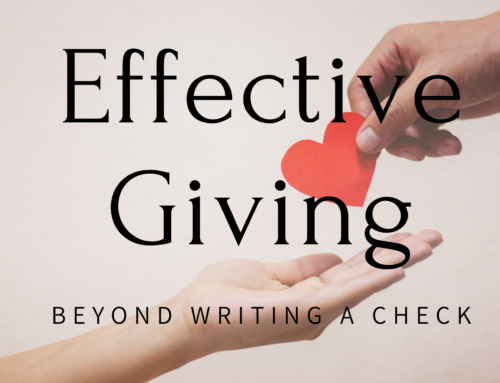Estate planning isn’t difficult but it is time consuming if you want to do it right. According to a new study by Caring.com, only 40% of Americans currently have an estate plan of any sort at all. What that means is that nearly 60% of adults in the US have left no guidance whatsoever if something were to happen to them. Believe it or not, only 36% of adults with children under 18 have a will or a trust. The main reason cited for not having created an estate plan is that “they haven’t gotten around to it.” The second reason cited is even more depressing because 29% say they didn’t feel like they had enough assets to leave to anyone.
All those individuals who “haven’t gotten around to it” probably do understand one thing and that is it takes time and a great deal of energy to develop a solid estate plan. While I would never recommend having no estate plan at all, it is better if you follow the following steps to create a great estate plan that truly protects you and your family. Proper estate planning takes planning and preparation. There is a simple four step planning process that can really help you figure out how to create an Estate plan that works for you.
The first step is to truly understand your financial situation. Take an inventory of your assets and liabilities. What do these look like today and what will they look like in the future? What could be good or bad for them in the coming years and how will you protect them? Step two is to understand your family situation. Who are your family members, how are they with money and do any have special needs? At this juncture, you might want to hire and advisor or attorney to help you with the final two steps. These steps are often better discussed with an advisor. The third step is to determine goals and objectives based on the previous two steps. It often helps to have an experienced advisor help you paint a picture of what realistic goals and objectives truly are. Finally, identify and implement techniques to achieve goals on a tax-enhanced basis. Common objectives of estate planning include, minimizing transfer taxes, creditor protection, avoiding probate, and ability to control who gets your assets once you are gone. I also have included a link to one of my earlier posts with a handy estate planning checklist.
It seems like every month another celebrity passes like Prince who had no will or estate plan. In the end, the only ones who benefit are the lawyers and the probate courts. A basic estate plan is simple to create once you have done the 4 planning steps outlined in the above paragraph. A proper estate plan starts with a living will and revocable trust. These two documents outline who gets what upon your passing. They will help in transferring real estate and investments, clarify ownership and titling of assets and coordinate beneficiary designations. The living will and revocable trust are particularly important in 2nd marriages to make sure that your beneficiaries (generally children from the first marriage) get the money you wish to leave them. Other documents that are critical to an estate plan are Durable Powers of Attorney for finance. These powers of attorney allow you to give either general or limited powers to an agent to act on your behalf. Similarly, a Medical Power of Attorney and Advance Medical Directives act in a similar way to have an agent act on your behalf if you are incapacitated and cannot make your own medical decisions.
It is a shame that Americans do not take the time to create a solid estate plan. It is far too important to leave it to chance and you wouldn’t want to die trying. I suggest you follow the four steps and hire an attorney before your heirs must hire one to get your estate out of probate. Trust me it is a lot cheaper to hire an attorney to help you write an estate plan than have your heirs hire one to untangle the probate mess your estate is in. This post is intended to provide basic estate planning advice, I am not an estate planning attorney and I strongly advise you to hire one before getting too far along in this process.
Disclosures: This post is solely for informational purposes. Past performance is no guarantee of future returns. Investing involves risk and possible loss of principal capital. No advice may be rendered by RHS Financial, LLC unless a client service agreement is in place. Please contact us at your earliest convenience with any questions regarding the content of this post. For actual results that are compared to an index, all material facts relevant to the comparison are disclosed herein and reflect the deduction of advisory fees, brokerage and other commissions and any other expenses paid by RHS Financial, LLC’s clients. An index is a hypothetical portfolio of securities representing a particular market or a segment of it used as indicator of the change in the securities market. Indexes are unmanaged, do not incur fees and expenses and cannot be invested in directly.






